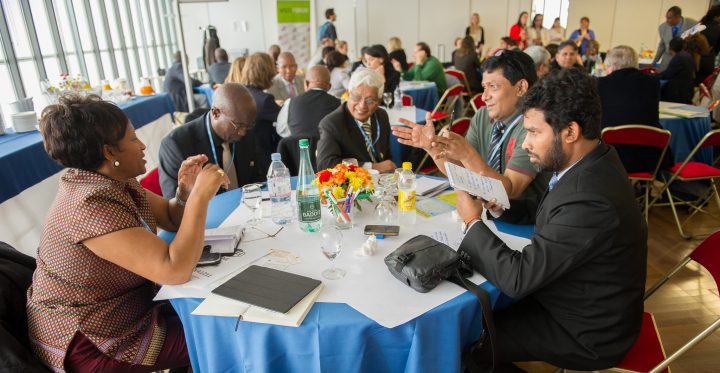Why the Leader is the Network
August 8, 2017 3 Comments
Photo by Sandeep Mani, shared under provisions of Creative Commons attribution license 2.0.
I am saddened to learn that Mila Baker passed away recently. While I did not know her personally, she was a mentor from a distance. A few years ago, I read her book about peer-to-peer leadership and found it both enlightening and validating as I continued my journey to uncover more about the promise of seeing and doing in networked ways.

Mila N. Baker
Mila Baker was a writer, teacher, philanthropist, cross-sector leader and artist. At the time of her passing, she served on the Board of Directors for the Berrett-Koehler Foundation, was a member of the adjunct faculty at Columbia University Teachers College, as well as a Principal Research Investigator at the Institute for Collaborative Workplaces, and Visiting Professor at Kuwait University. The following is a post I wrote after reading her book published in 2014.
I just finished reading Mila Baker’s Peer-to-Peer Leadership: Why the Network is the Leader, which adds to the growing case for more widespread network thinking, foregrounding of human relationships, and shifting traditional conceptions (and myths) of leadership in business and beyond. Baker’s book echoes the spirits of Margaret Wheatley, Clay Shirky, Carol Sanford, Nilofer Merchant, Kevin Kelly, and Harold Jarche, and I appreciate how she couches her writing in the evolving leadership and organizational development literature and thinking.

Photo by ITU Photos, shared under provisions of Creative Commons attribution license 2.0.
Baker begins by making the case that the still dominant individualized and command-and-control leadership lexicon is insufficient for our changing, complex, and interconnected world. She goes on to promote the use of peer-to-peer (P2P) IT architecture as a model for framing thinking about leadership and how people organize themselves. In P2P arrangements, everyone becomes a generative and recipient node in a network, and has easy access to other nodes. Going forward, Baker believes that the following concepts will be critical for organizations to embrace to remain relevant:
- “node community” (instead of hierarchy)
- “equipotency” (instead of fixed positional authority)
- “relational dynamics” (instead of purely role-based and transactional modalities)
Where this leads, as evidenced by a few examples offered by Baker, are arrangements where everyone leads and follows, reciprocity and transparency are fundamental values, and survival and thriving come through connection.
While there is much from the book that could be mentioned here, I wanted to focus on what Baker lifts up as the four developmental steps for P2P organizations to go through on their way to leveraging individual and collective potential for greater adaptability, resilience, and responsibility. These are:
- Internalizing values and purpose
- Creating opportunities (permeable boundaries and multiple channels) for mutual and continuous exchange of input and output (flow!)
- Reconciling polarities and abstractions (harmonizing destructive internal dissonance)
- Forming dyad exchange structures (for intelligent, emergent, trusted, as-needed actions)
According to Baker, an organization must go through the first three steps if it is to realize the fourth. What this suggests is that leadership becomes about the collective work of creating conditions for an organization (or community of nodes) to:
- align at different levels around commonly held ground and direction,
- build and deepen connectivity,
- take self-organized action (cooperation and collaboration),
- continuously monitor and course correct.
In other words, the focus is on stewardship, relationship, and interaction.
I am struck by how this seemingly validates and extends what we at IISC uphold as the need for more wide-spread and skillful Facilitiative Leadership. And I am sitting with the implications for how mindsets need to continue to shift to seeing the greater potential of the networks that support us and the peer-to-peer world. Thank you, Mila Baker, for the bequest of your gifts.

3 Comments
I am so moved by this article. I was the Executive Director of Berrett Koehler Foundation when she passed away. I cannot say what a loss that was, for the world. Mila was, and is, an incredible mentor. She brought profound humanity, patience and passion to everything she did. I miss her all of the time, and I’m so happy to hear your kind words about her legacy.
Thank you, Annie-Rose, for sharing. I never got to know Mila really well, but she was a great teacher from a distance. Wonderful of you to lift up her humanity here. Best, Curtis